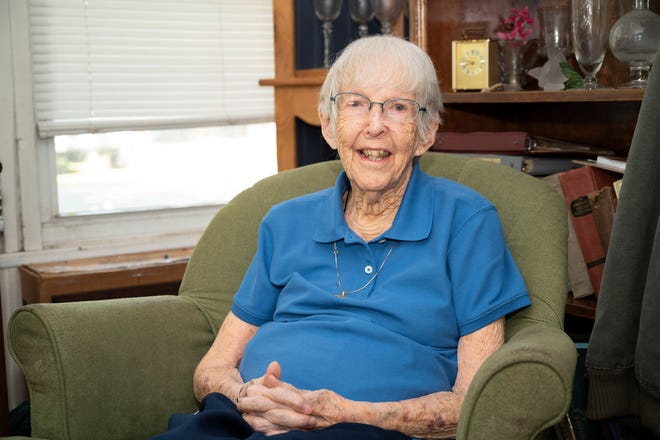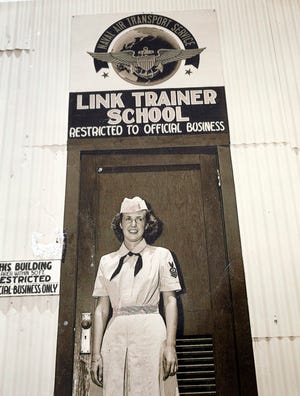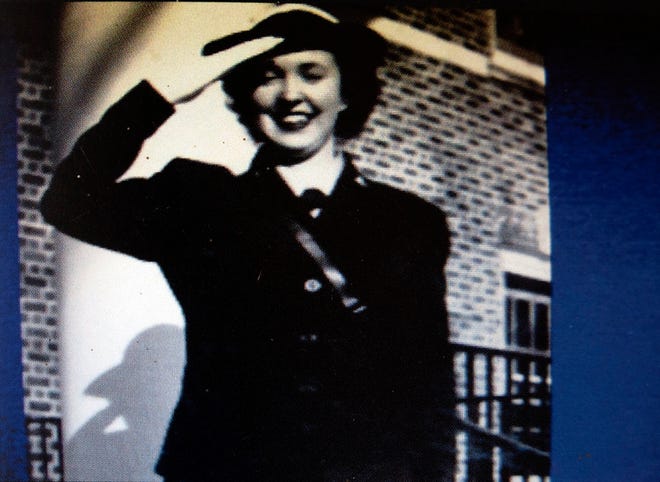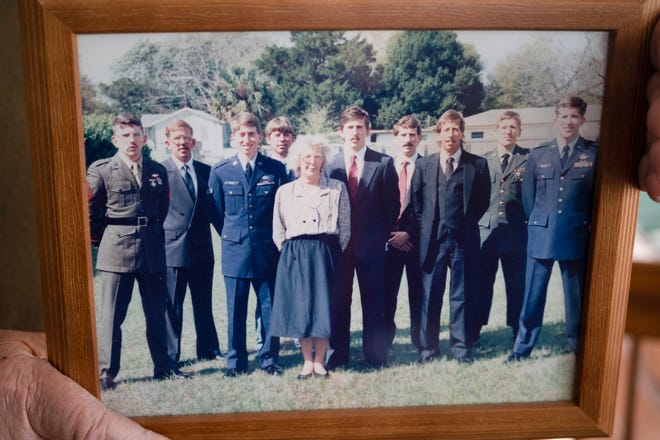Loving others begins within
By Donna Frischknecht Jackson | Presbyterians Today

The Presbyterian Church in Norwood, N.J., invited the community to a candlelight vigil on its lawn in response to the recent rise in Asian American hate crimes. The evening included several people sharing their stories of discrimination. Courtesy of Timothy D. Son
John Woolman was a gentle soul with a mountainous task. The 18th-century Quaker, disheartened by the prevalence of slave ownership among his people, spent his life traveling to meetings of the Religious Society of Friends throughout Maryland, Pennsylvania and Delaware, speaking against it. He voiced his opinions with a quiet passion, that is, speaking only when compelled by the Spirit to break the silence of the “expectant waiting” that frames Quaker worship.
For all his gentle convictions, though, Woolman was not without fault. The “Apostle of Abolition,” as he would become known by historians, had once written a bill of sale for a slave for a wealthy friend. While at the time unsettling for Woolman, who viewed slavery as inconsistent with Christian teachings, it became more troublesome as he continued speaking against his fellow Quakers.
Then one day, while walking on a lonely stretch of road to yet another meeting — Woolman stopped using a horse because he didn’t want to burden the enslaved men of the homes he lodged in with the grooming of another animal — his heart opened to his complicity in perpetuating slavery. While uncomfortable, it was the very recognition that led Woolman to write in his journal, “I find peace.”
That peace, found in what can be viewed today as the spiritual practice of prayer walking, renewed Woolman’s commitment to abolishing slavery. It also changed his approach as he focused more on equity for Blacks and less on judging slave-holding Quakers. Woolman’s tireless work was not for naught. In 1776, four years after his death, slave ownership among Quakers was finally prohibited.
Long, hard work
While the Woolmans of early America faced a difficult task, mobilizing congregations for antiracism work in the 21st-century church is proving just as challenging, especially as studies show motivation for such work is waning.
In 2019, Barna Group researchers asked how motivated Christians were to take on the work of racial justice. What they discovered was that 11% of U.S. adults were “unmotivated,” with 9% “not motivated at all.” In 2020, the same question was asked. This time the percentages increased with 12% saying they were unmotivated and 16% not motivated at all. More revealing was that the number of those who were “somewhat motivated” shrunk, and the number of those who were motivated held fairly steady, “indicating some of those who might have previously been on the fence about addressing racial injustice have become more firmly opposed to engaging,” researchers said.
Presbyterian pastors, many of whom serve predominately white congregations, are not surprised by these numbers. They know firsthand the adverse reaction to any mention of the words “racism,” “white supremacy” or “white privilege” on a Sunday morning. While some choose to tread carefully — or not at all — others are embracing the famous words of the late U.S. House of Representatives member and civil rights activist John Lewis, and are getting into “good trouble” by pressing the racial issue.
The Rev. Cyndi Wunder, who recently became pastor of First Presbyterian Church of Baker City, Oregon, is one such pastor who troubled the waters by preaching about Black Lives Matter in the summer of 2020. While she received harsh feedback, it hasn’t silenced her. “I still do it. I’m just a bit more careful about how I bring it up. If I’m too quick to the point, people stop listening,” she said, adding that preaching racial justice isn’t political. “It’s acknowledging the ‘imago Dei,’ the ‘image of God.’ It’s loving our neighbor.”
Grounded in our faith
Going straight to the Gospel message to “love one another” is one way pastors and lay leaders are finding an entry point to engage their congregations in racial justice matters.
For her congregation of First Presbyterian Church in Winnebago, Illinois, the Rev. Lisa López-Meyer teaches about why anti-racism work is a spiritual commitment and stresses three basic tenants of the Christian faith that include Wunder’s point about all people being created in the image of God. “Jesus also told us to do unto others as we would like them to do to us, but racist behavior does to others what we would hate done to us. Jesus said, too, to love our neighbors, but racist structures inhibit the practice of love in communities,” she said.
Tapping into the elements of worship, such as using excerpts from various Presbyterian confessions as an affirmation of faith in place of the oft-used Apostles’ Creed, is another way to find a point of entry into the hearts of those in the pew who might be thinking racial justice is not their calling.
“We too often forget these important guides [the confessions] for our faith,” said the Rev. Bruce Gillette. He co-pastors First Presbyterian Union Church in Owego, New York, with his wife and hymn writer, the Rev. Carolyn Winfrey Gillette.
Gillette cites three confessions that address race that he has used as an affirmation of faith during worship. They are: “A Brief Statement of Faith,” the “Confession of Belhar” and the “Confession of 1967” — the latter citing that “the church labors for the abolition of all racial discrimination and ministers to those injured by it” (9.44a).
“Grounding our racial justice work in our faith tradition helps show it is not simply responding to the politics of the time, but our needing to be committed to justice (racial, economic, etc.) for the long haul,” he said.
The 12-step model approach
The faces begin appearing on the computer screen. Once everyone is in attendance, the host greets everyone with, “Hi, my name is (insert name) and I’m a racist.”
It’s another Thursday night for the members of Covenant Presbyterian Church in Madison, Wisconsin, who have gathered on Zoom to participate in a 12-week program called Racist Anonymous Fellowship. The program, which began last fall, is based on the 12-step program made famous by Alcoholics Anonymous, where participants “work the steps” in overcoming their addiction. Like alcoholism, some Christians, such as spiritual writer and Franciscan friar Richard Rohr, see a bias against anyone as an addictive sin.

Jenny Von Bergen, left, and Brenda Moten, of Covenant Presbyterian Church in Madison, Wis., have seen hearts open at its Racist Anonymous Fellowship group, which started last fall. Courtesy of Covenant Presbyterian Church
Racist Anonymous participants are asked to work AA’s similar steps that include surrendering to a higher power, making amends with others and taking a moral inventory, which is perhaps the hardest step for most people. “In taking one’s moral inventory, participants are asked to look honestly at themselves and write down all the things that they think about Black people,” said Brenda Moten, a member of Covenant Presbyterian and the organizer of Racist Anonymous Fellowship. “It is a personal exercise that’s very revealing.”
Moten is no stranger to the discomfort of having one’s personal inventory taken. She once attended Al-Anon, a support group for families of those battling alcoholism. It was there where honest assessments led to “God opening my heart and showing me who I am.” That experience led Moten to believe that the work of healing any “ism” begins with the opening of hearts, which is done not by pointing fingers at a person’s wrongdoing or beliefs. Neither does it involve antiracism book study groups.
“Telling people that they are racist isn’t going to help,” she said. “And reading a book on racism doesn’t necessarily make you woke. It has to start in prayer and rooted in Scripture,” she said.
The weekly Racist Anonymous Fellowship doesn’t have a book to read, nor does it get into political discussions. Rather, those gathered are focused on spiritual practices of prayer, silence and listening to one another. The meetings, in fact, open with silence followed by the Serenity Prayer used in Alcoholics Anonymous groups: “God, grant me the serenity to accept the things I cannot change, the courage to change the things I can, and the wisdom to know the difference.” Afterward, participants introduce themselves with their name followed by, “I am a racist.” Moten admits that some people find themselves getting defensive over it. “If that happens, we suggest they say, ‘Hi, my name is, and I have been conditioned by racism.’”
The objective of the meetings is not to force a solution to the race problem, says Moten. Although, once a heart is open to the problem of racial inequities, action is an organic response of those attending the fellowship. Jenny Von Bergen, a Covenant Presbyterian member, found working the steps a “very personal” experience. As a white person who works in education, she said it has her questioning more things about the educational system.
“My deep hope for people participating in the group is that their hearts will change and that they will also begin seeing so many inequalities that exist,” said Von Bergen.
The Rev. Charles Berthoud, head of staff at Covenant Presbyterian, is encouraged by the work of the Racist Anonymous Fellowship. He has also been blessed by the “deep spirituality” that Moten — one of the few African Americans in the mostly white, 700-member congregation — has brought with her when joining them five years ago.
“When she and I talk about issues of race, we realize we are really talking about the issues of the heart,” he said. “And so, what will it take to open more hearts?”
The power of pilgrimages
As pastors pull racial justice excerpts from the Book of Confessions for worship and groups take moral inventories, several congregations in the Presbytery of the Twin Cities Area in Eagan, Minnesota, have recently experienced a nine-month pilgrimage learning of the untold racial history in their own backyard. According to the Rev. Anna Kendig Flores, such a pilgrimage was to help bring along all churches in the presbytery — big and small — in the need for anti-racism work discussion.
“There is a big spread of churches. We have the churches in Minneapolis who have been on the frontlines of racial protests. We also have rural, mostly white churches that might be thinking none of what is happening affects them,” said Kendig Flores, who is the anti-racism coordinator for the presbytery.
The pilgrimage, she added, was a way for congregations to learn the history of the land they live on.
“Part of antiracism work is to know this history — to hear that there was a lynching, there was a Dakota uprising — and ask, ‘How then does it shape us?’” she said.
The Rev. Carol Reed, transitional minister at Central Presbyterian Church in St. Paul, for example, wrote in a recent presbytery newsletter of her visit to Mankato, Minnesota, to see the site of the hanging of 38 Dakota men in 1862. Reed said that while she grew up in Minnesota, she was never taught about this event in school. “We had learned from the perspective of the white settler,” she said, adding that it has only been recently that she began studying the history of her state from the perspective of its Indigenous people.
While the pilgrimage provided a way to elevate the importance of antiracism work, Kendig Flores admits that for some congregations it is a struggle to get such work started.
She also acknowledges that there really is no way to do the work that brings everyone along.
“This is extremely challenging work,” she said. “It gets to the core of what the Gospels are saying to us to love one another. The hard part is that we love community, and we don’t want to lose anyone.”
But is the fear of losing a member over racial justice issues a reason for not engaging in anti-racism work? That’s a real tension for many pastors.
“There is room for all, but Jesus is not making it easy,” said Kendig Flores.
The spiritual practice of storytelling
For the past seven years, the Rev. Timothy D. Son of the Presbyterian Church in Norwood, New Jersey, has been working faithfully in bringing together two cultures — American and Korean — into one unified body of Christ. That’s not an easy task, but Son had a vision when he came to the community and knew that working toward the goal of “all may be one” involved patience and lots of prayer. He began bridging the two groups within the church, and rather than just having the Korean fellowship pay rent for worship space, he suggested that they work together in mission and be incorporated into the Norwood Presbyterian family.

Asian American youth participated in the Presbyterian Church of Norwood’s vigil against hate by providing music for the evening. Among the songs placed were “Amazing Grace” and “God Bless America.” Courtesy of Timothy D. Son
Two-and-a-half-years ago, the church began having a combined worship once a month. On the Sundays when two services are held — one in English and one in Korean — a time of fellowship is scheduled between them, allowing for the groups to be in a sacred space to share their joys, concerns and, more importantly, their stories. The sharing of stories is important, says Son, as it is how we see the humanity in one another.
“The change in worship has begun reshaping the congregation,” he said.
In April, the pastor received a call from an elder who was still reeling from March’s horrific shooting spree that killed six Asian Americans in Atlanta and was very concerned about what was happening to her Asian American siblings. Son knew the congregation needed to act. But rather than a protest filled with shouting and political messages, Son — a man whose faith is taken from the playbook of the prophet Isaiah, who wrote, “in quietness and in trust shall be your strength” — opted for the deeply spiritual practice of a community candlelight vigil.
More than 100 people attended the vigil against Asian American hate that was held on the lawn of the church. Norwood’s mayor and six Borough Council members were also in attendance. The purpose of the vigil, according to Son, was not to protest with anger.
“The real purpose was to show others how to promote love and reconciliation,” he said, adding that hate and violence from both parties — the ones who have inflicted the hurt and the ones who have been harmed — “do not glorify God.”
Son wanted God to be glorified in the prayers and in the music that Asian American youth performed, playing “God Bless America” and “Amazing Grace.” The main part of the night, though, was the opportunity for people to tell their stories of hate and discrimination.
“Everyone is a child of God. Everyone has story that needs to be heard,” said Son, adding that he doesn’t see himself as a radical pastor fighting racism. Rather, he views antiracism work in the modeling of Christ to others.
“If you read the Bible, you just can’t be silent on the issues of hate,” Son said with a gentle conviction that would rival that of John Woolman.
When it comes to antiracism work, silence is not an option for Presbyterian pastors and their congregations. But before words are spoken and action is taken, all work should begin with the prayer of the psalmist that is often heard only at the start of the Lenten season: “Create in me a clean heart, O God” (Psalm 51:10).
“It’s a psalm we shouldn’t read just on Ash Wednesday,” said Covenant Presbyterian’s Berthoud. “It’s appropriate for the season of racial justice that the church is in now.”
Donna Frischknecht Jackson is editor of Presbyterians Today.
Original article from Presbyterian Mission Agency
This work is licensed under a Creative Commons Attribution-NonCommercial-NoDeratives 4.0 International License. Reprinted by permission.











